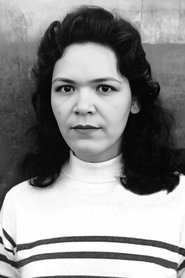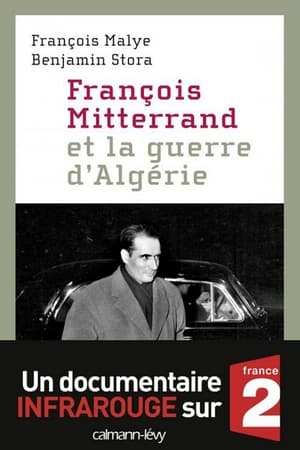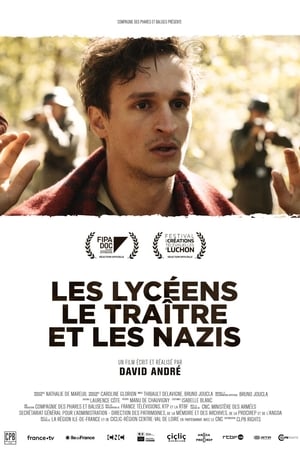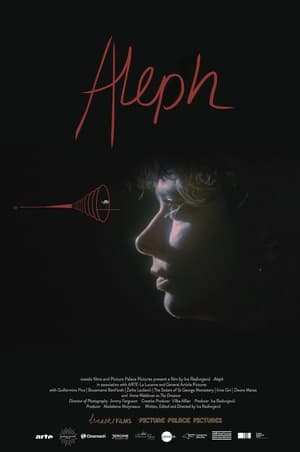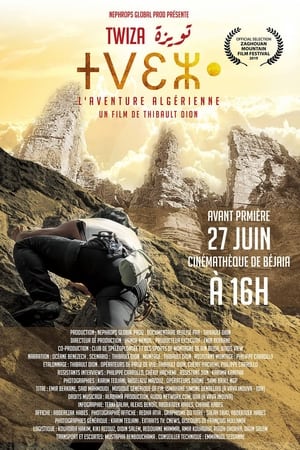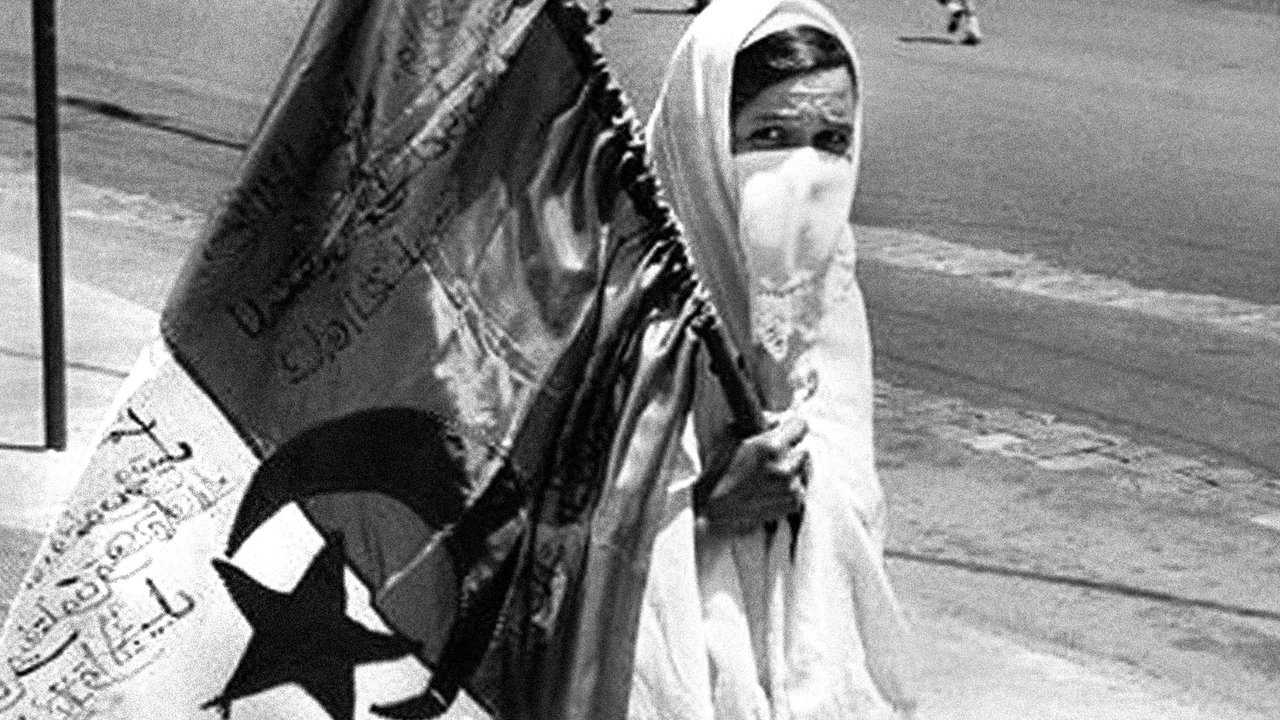
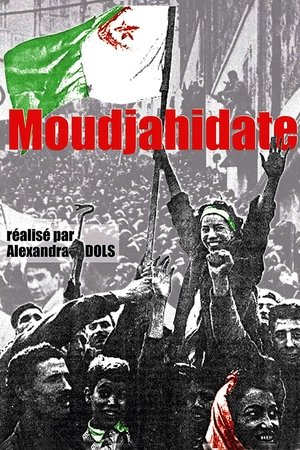
Moudjahidate(2008)

Movie: Moudjahidate

Moudjahidate
HomePage
Overview
Release Date
2008-11-03
Average
5.5
Rating:
2.8 startsTagline
Genres
Languages:
العربيةFrançaisKeywords
Recommendations Movies
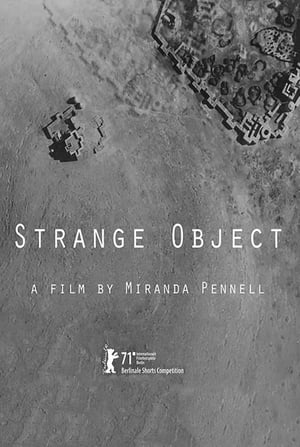 6.0
6.0Strange Object(en)
An archival investigation into the imperial image-making of the RAF ‘Z Unit’, which determined the destruction of human, animal and cultural life across Somaliland, as well as Africa and Asia.
 6.6
6.6Sonic the Hedgehog: The Movie(ja)
Sonic's arch nemesis Dr. Robotnik has been banished from the Land of Darkness by an evil Metal Robotnik. The devious doctor tells Sonic that the Robot Generator has been sabotaged and will blow Planet Freedom to kingdom come. But it's not until the President's beautiful daughter Sara turns on the charm that Sonic springs into action.
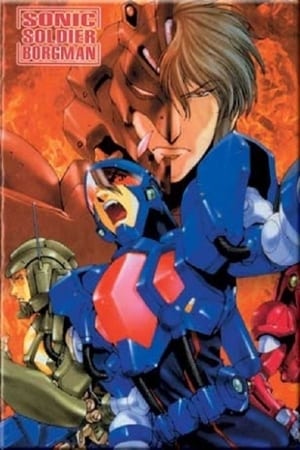 6.1
6.1Sonic Soldier Borgman: Last Battle(ja)
It has been three years since the end of the series. Ryo works for NASA as an engineer on a large rocket project. Anise, fellow Borgman and lover, has been reduced to flipping burgers in a restaurant. So naturally, when she gets a letter offering her a professional job in a big, Japanese, high-tech project, she jumps at the chance. Ryo, however, is as indecisive as ever and so she leaves for Japan without him. Chuck Sweager, the third Borgman, is a police officer, as is his girlfriend Miki...
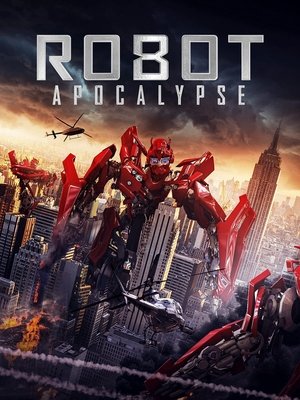 6.3
6.3Robot Apocalypse(en)
An expert hacker is targeted by a sentient AI after she realizes the threat it poses, and she must try to stay off its radar long enough to stop it.
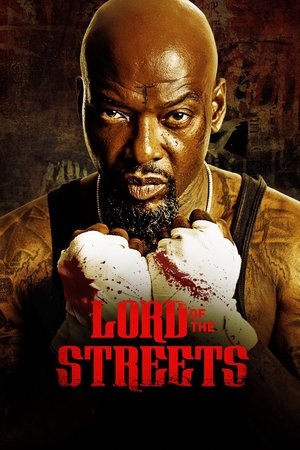 5.1
5.1Lord of the Streets(en)
When Jason Dyson refuses to make his prized fighter throw an MMA match, a notorious gangster collects his debt by killing the fighter and kidnapping Jason's daughter. Now he must train a prisoner to endure five consecutive underground fights to save her.
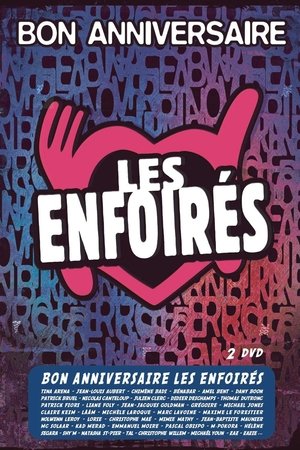 7.8
7.8Les Enfoirés 2014 - Bon anniversaire Les Enfoirés(fr)
Show recorded at the Zénith in Strasbourg on January 19 and 20, 2014 for the benefit of the Restos du Coeur.
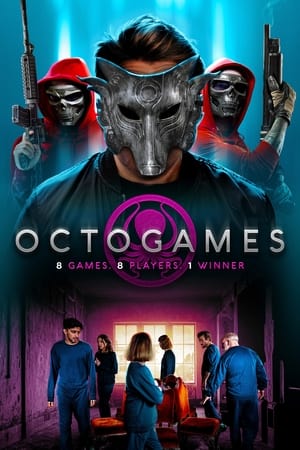 5.4
5.4The OctoGames(en)
Eight contestants compete in eight deadly, classic children's games. They seek fame beyond their wildest dreams, competing for the chance to take over the YouTube channel of the famous yet elusive masked content creator known only as "JaxPro".
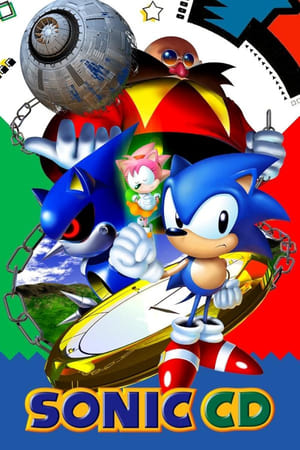 6.9
6.9Sonic CD Intro Movie(ja)
A movie that plays during the opening of video game Sonic CD.
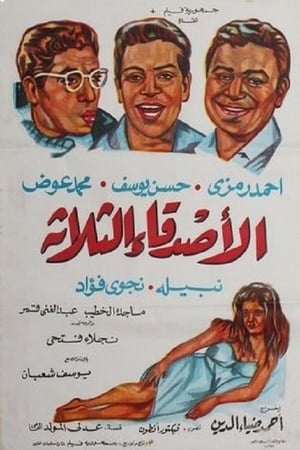 6.1
6.1The Three Friends(ar)
Three friends are arrested after committing an accident with their car. After finishing their sentence, they become partners with the owner of a decoration workshop. But he deceives them and spends the money in gambling. They force him to sign a waiver of his workshop but he wants to get it back.
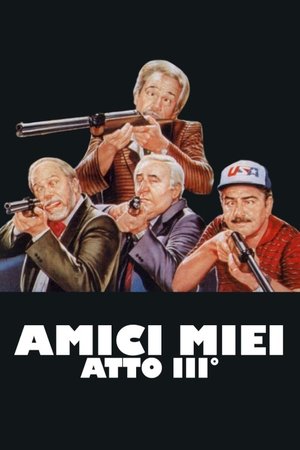 6.4
6.4My Friends Act III(it)
This time the "amici" (friends) are just four: Necchi, Meandri, Mascetti and Sassaroli. Nevertheless they are older they still love to spend their time mainly organizing irresistible jokes to everyone in every kind of situation. Mascetti is hospitalized in a geriatric clinic. Of course the place become immediately the main stage for all their jokes. After some jokes they decided to place an ultimate incredible and farcical joke to the clinic guests.
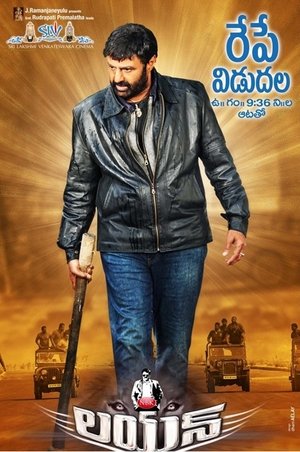 6.7
6.7Lion(en)
The film begins in Mumbai where a terror-sticking dead body from the hospital mortuary wakes up. Everybody reads him as Godse who is in a coma for 18 months, and a couple, Bhupati & Malathi Devi forwards as his parents. Further, he knowledges that he is CEO of a company that met with an accident done by his opponent Banerjee. However, he denies it, stating himself as Bose when doctors analyzed that it is a blackout stage.
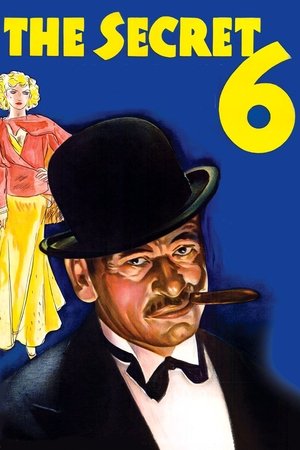 5.8
5.8The Secret Six(en)
Bootlegger/cafe owner, Johnny Franks recruits crude working man Scorpio to join his gang, masterminded by crooked criminal defense lawyer Newton. Scorpio eventually takes over Frank's operation, beats a rival gang, becomes wealthy, and dominates the city for several years until a secret group of six masked businessmen have him prosecuted and sent to the electric chair.
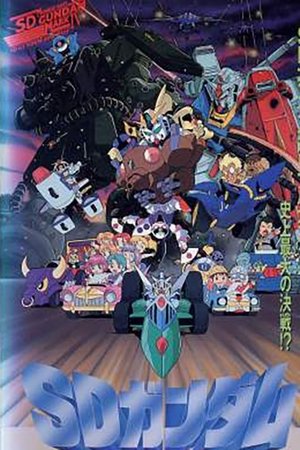 4.4
4.4Mobile Suit SD Gundam Mk IV(ja)
The SD Gundams are at it again: first with a race among all of the prior SD Gundam characters, then the SD Zeons run a space travel agency in the second episode.
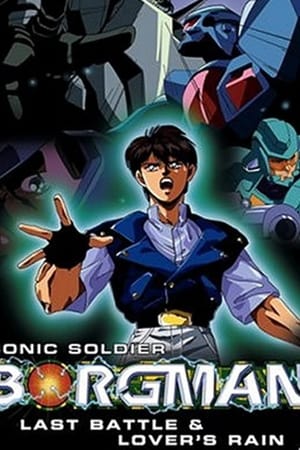 6.6
6.6Sonic Soldier Borgman: Lover's Rain(ja)
Picking up several years after the dissolution of the original Borgman team, this volume reunites the three remaining members--rocket scientist Ryo, his girlfriend Anise, and police officer Chuck Sweager--for the emotionally-driven episode "Lover`s Rain," which finds the trio facing an army of the undead bent on a rampage of murder and destruction.
Fight Club (Russian version)(ru)
The Russian version of the movie "Fight Club" is not just a Russian version of a well-known cult film, it is the result and of the hard work of two young men and their love for cinema, Alexander Kukhar (GOLOBON-TV) and Dmitry Ivanov (GRIZLIK FILM) , who are responsible for this project, from the development of its idea and the selection of the cast, to the organization of filming and financial support. Filming lasted a whole year. Everyday work, constant trips, searching for suitable film sets and an exhausting schedule - all this was not in vain and resulted in an unusually amazing and original project - the film "Fight Club", created in the very heart of southern Russia, in the city of Krasnodar, by two young people
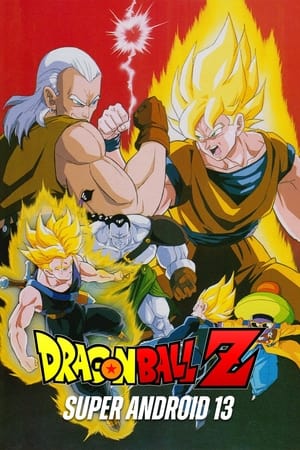 6.9
6.9Dragon Ball Z: Super Android 13!(ja)
Dr. Gero's Androids #13, #14, and #15 are awakened by the laboratory computers and immediately head to the mall where Goku is shopping. After Goku, Trunks, and Vegeta defeat #14 and #15, #13 absorbs their inner computers and becomes a super being greater than the original three separately were. Now it is up to Goku to stop him.
Similar Movies
 10.0
10.0Stay In Algeria(fr)
Algeria, summer 1962, eight hundred thousand French people left their native land in a tragic exodus. But 200,000 of them decided to attempt the adventure of independent Algeria. Over the following decades, political developments would push many of these pieds-noirs into exile towards France. But some never left. Germaine, Adrien, Cécile, Guy, Jean-Paul, Marie-France, Denis and Félix, Algerians of European origin, are among them. Some have Algerian nationality, others do not. Some speak Arabic, others do not. They are the last witnesses to the little-known history of these Europeans who remained out of loyalty to an ideal, a taste for adventure and an unconditional love for a land where they were born, despite all the ups and downs that the free Algeria in full construction had to go through.
 5.5
5.5Amour de vivre(fr)
An account of the brief life of the writer Albert Camus (1913-1960), a Frenchman born in Algeria: his Spanish origin on the isle of Menorca, his childhood in Algiers, his literary career and his constant struggle against the pomposity of French bourgeois intellectuals, his communist commitment, his love for Spain and his opposition to the independence of Algeria, since it would cause the loss of his true home, his definitive estrangement.
 6.0
6.0The Panafrican Festival in Algiers(ar)
Festival panafricain d'Alger is a documentary by William Klein of the music and dance festival held 40 years ago in the streets and in venues all across Algiers. Klein follows the preparations, the rehearsals, the concerts… He blends images of interviews made to writers and advocates of the freedom movements with stock images, thus allowing him to touch on such matters as colonialism, neocolonialism, colonial exploitation, the struggles and battles of the revolutionary movements for Independence.
 6.0
6.0Glimpses of Morocco and Algiers(en)
This FitzPatrick Traveltalk short visits the cities of Casablanca, Rabat, and Marrakesh in Morocco, as well as the city of Algiers in Algeria.
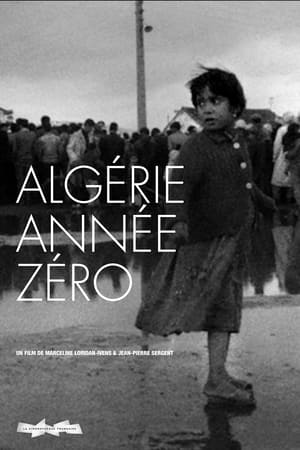 10.0
10.0Algeria, Year Zero(fr)
Documentary on the beginnings of Algerian independence filmed during the summer of 1962 in Algiers. The film was banned in France and Algeria but won the Grand Prize at the Leipzig International Film Festival in 1965. Out of friendship, the production company Images de France sent an operator, Bruno Muel, who later declared: "For those who were called to Algeria (for me, 1956-58), participating in a film on independence was a victory over horror, lies and absurdity. It was also the beginning of my commitment to the cinema."
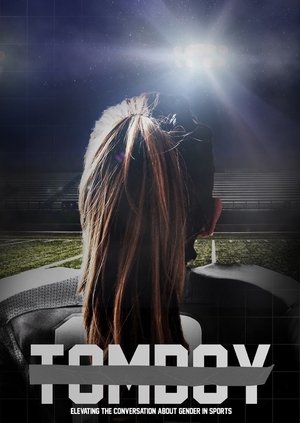 0.0
0.0TOMBOY(en)
TOMBOY explores the obstacles that young girls encounter on the recreational stage, the stereotypes, language issues and cultural disparities that follow, and ultimately the insufficient media coverage and compensation that afflicts elite professional athletes seeking full recognition for their talents. The journey of the female athlete is often discouraging, and despite progress achieved during the Title IX era, gender equity in athletics has a long way to go.
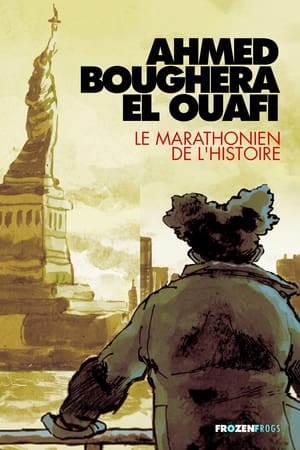 10.0
10.0El Ouafi Boughera, The marathon runner of history(cn)
On August 5, 1928, after 2 hours and 32 minutes of racing, the 71st rooster wearing the bib entered the Olympic stadium in Amsterdam. Ahmed El Ouafi Bouguéra wins the gold medal and becomes the first Olympic champion from the African continent. He achieved his feat under the tricolor flag. The start of his real marathon is underway. The history of sport extends to the history of Algeria and France. This documentary retraces the different stages of the life of this great champion, not only the history of sport but also the great story. Archival photographs and interviews mingle with the painted paintings. The series thus once again gives voice to this forgotten hero, one of the great heroes of immigration who defended France for more than a century.
 7.5
7.5To Be Twenty in the Aures(fr)
A group of refractory and pacifist Bretons is sent to Algeria. These beings confronted with the horrors of war gradually become killing machines. One of them did not accept it and deserted, taking with him an FLN prisoner who was to be executed the next day. International Critics Prize at the 1972 Cannes Film Festival. Copy restored in 2012
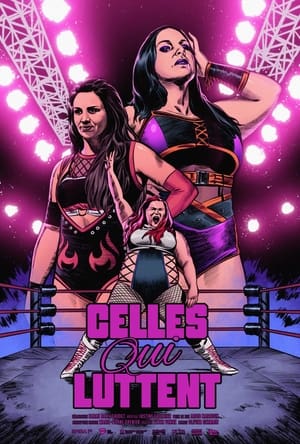 7.5
7.5Sisters of Wrestling(fr)
Sisters of Wrestling paints an intimate portrait of Azaelle, LuFisto and Loue O'Farrell, three ring warriors for whom wrestling is both a passionate love and an outlet from everyday life.
 6.8
6.8CHoosing at Twenty(fr)
Between 1954-1962, one hundred to three hundred young French people refused to participate in the Algerian war. These rebels, soldiers or conscripts were non-violent or anti-colonialists. Some took refuge in Switzerland where Swiss citizens came to their aid, while in France they were condemned as traitors to the country. In 1962, a few months after Independence, Villi Hermann went to a region devastated by war near the Algerian-Moroccan border, to help rebuild a school. In 2016 he returned to Algeria and reunited with his former students. He also met French refractories, now living in France or Switzerland.
 10.0
10.0Abd El-Kader(fr)
Illustrated with archival photographs, animations and live action, this film explores the history and historical and spiritual heritage of Emir Abd El-Kader. Algerian leader of the 19th century, was admired by Abraham Lincoln and celebrated to this day by the Red Cross as a great humanitarian. Emir Abd el-Kader, the man who challenged the French armies from 1832 to 1847 before creating the bases of a real Algerian state, is today considered by independent Algeria as one of the most outstanding figures. of its history. The nobility of his attitude after his capture and the very effective protection he brought to the Christians of Damascus at the end of his life also earned him great prestige among his former adversaries. A documentary told in dialectal Arabic by the voice of Amazigh Kateb.
 8.0
8.0The Lives of Albert Camus(fr)
Albert Camus died at 46 years old on January 4, 1960, two years after his Nobel Prize in literature. Author of “L'Etranger”, one of the most widely read novels in the world, philosopher of the absurd and of revolt, resistant, journalist, playwright, Albert Camus had an extraordinary destiny. Child of the poor districts of Algiers, tuberculosis patient, orphan of father, son of an illiterate and deaf mother, he tore himself away from his condition thanks to his teacher. French from Algeria, he never ceased to fight for equality with the Arabs and the Kabyle, while fearing the Independence of the FLN. Founded on restored and colorized archives, and first-hand accounts, this documentary attempts to paint the portrait of Camus as he was.
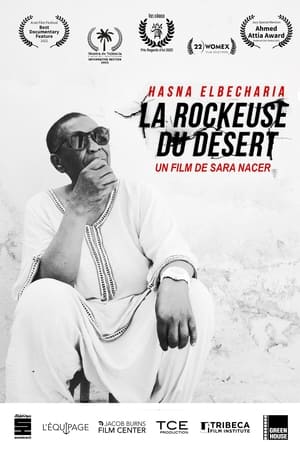 10.0
10.0The Desert Rocker(fr)
The Desert Rocker is an intimate, witty and profound portrait of the extraordinary Hasna El Becharia, a pioneer Gnawa artist. The first musician to break through the social barrier of this culture, she empowers and inspires women of all ages by reclaiming a musical tradition reserved for men for centuries . A singularly talented artist, she leads women to redefine their roles and challenge cultural norms , one musical performance at a time.
 6.6
6.6Mariner of the Mountains(fr)
Filmmaker Karim Aïnouz decides to take a boat, cross the Mediterranean, and embark on his first journey to Algeria. Accompanied by the memory of his mother, Iracema, and his camera, Aïnouz gives a detailed account of the journey to his father’s homeland, interweaving present, past, and future.
 10.0
10.0Algeria 1954, The Revolt Of A Colonized(fr)
This film presents the point of view of an Arab from Algeria who rebels against colonization. He analyzes the process of awareness, the transition to revolt, to armed insurrection. Algeria and the settlers are seen through this lens and not the way a Frenchman saw the country. He gives voice to the Arabs at a time when this word was not heard: sometimes it was not even produced, at least publicly. The testimonies are based on real propositions, most of them were made to the author during his stay in Algeria from 1948 to 1956, then in 1958 and 1959. The comments are borrowed from the texts of Arab theorists of the revolution Algerian. This film thus completely evacuates the point of view of those who are not insurgents; he does not give the opinion of the colonists. It is the direct expression of what was the revolt of a colonized person: it thus constitutes the very type of the historical document.
 10.0
10.0An Unhealed Wound - The Harkis in the Algerian War(fr)
It's the unforgivable story of the two hundred thousands harkis, the Arabs who fought alongside the French in the bitter Algerian war, from 1954 to 1962. Why did they make that choice? Why were they slaughtered after Algeria's independence? Why were they abandonned by the French government? Some fifty to sixty thousands were saved and transferred in France, often at pitiful conditions. This is for the first time, the story of this tragedy, told in the brilliant style of the authors of "Apocalypse".
